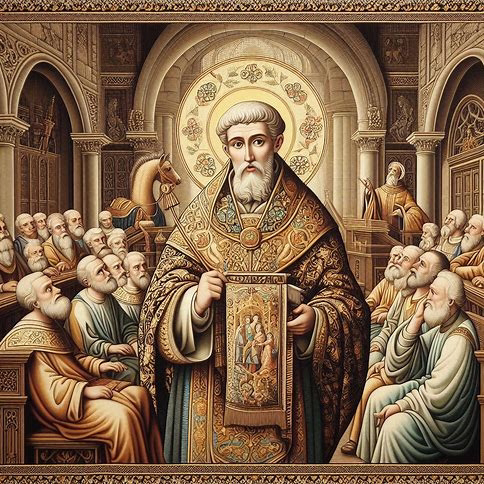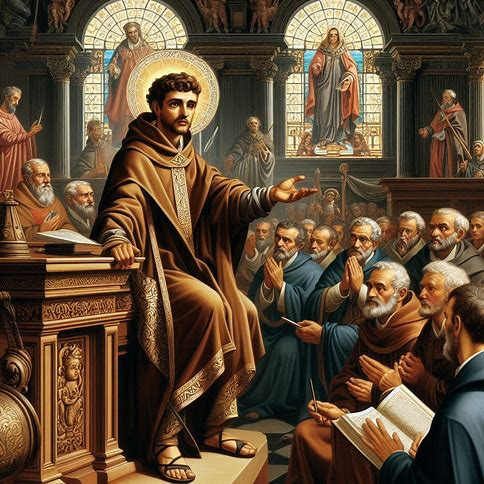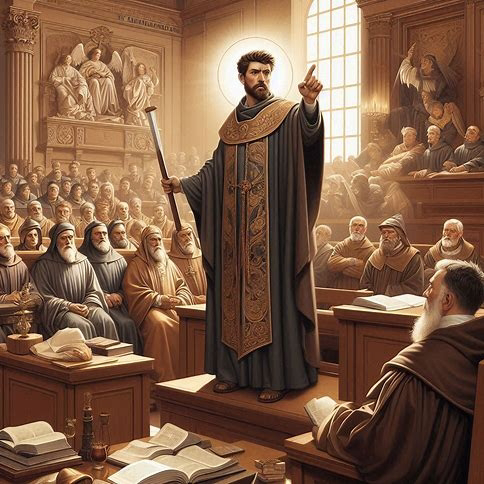OP-ED St. Isadore and Proposed Legislation in Washington State
Washington's Clergy Reporting Bill and the Constitutional Case for St. Isidore's Religious Charter School
By: Sunny Mars
Published by Miami News-Digest
Abstract
In a time of increasing state intervention into religious life, Washington State’s SB 5375 challenges centuries-old legal protections and presents a compelling argument for why faith-based institutions like St. Isidore must be granted clear legal space within public education. This article breaks down the implications of SB 5375, makes a case for religious liberty, and ties it to the current national debate on charter schools and First Amendment protections.
I. Introduction
Washington's SB 5375 proposes to strip the long-standing clergy-penitent privilege, even within Catholic confession. Simultaneously, religious institutions like St. Isidore Catholic Charter School are fighting for the right to engage in public education while maintaining doctrinal identity. These developments are not isolated—they converge on foundational constitutional questions.
Does the state’s interest in public welfare justify compelling clergy to break the seal of confession? And how does this relate to faith-based participation in public charter school systems? The answers illuminate the path forward for constitutional pluralism and the survival of religious liberty in public service.
II. Washington's SB 5375: Redefining Clergy Obligations
A. What the Bill Does
SB 5375, passed by the Senate in February 2025, requires clergy to report suspected child abuse regardless of how the information was obtained—even in sacramental confession. This eliminates the state-recognized spiritual privilege enshrined in RCW 5.60.060(3), undermining the confidentiality that anchors religious repentance and pastoral care.
B. Why It Faces Constitutional Challenge
The bill must meet strict scrutiny under First Amendment law. In Lukumi v. Hialeah, the U.S. Supreme Court ruled that laws targeting religious practices must be narrowly tailored and use the least restrictive means. SB 5375’s sweeping removal of religious protections does neither. It substitutes a broad mandate for a nuanced approach, trampling centuries of jurisprudence in the process.
III. From Confession to Coercion: Logical and Legal Ramifications
Legally mandating disclosure of confessional content turns clergy into unwilling agents of the state. More dangerously, it sets precedent for similar state intrusion into religious counseling, education, and family life. Without religious protections, state mandates may compel ideological conformity, violating the very pluralism public systems claim to protect.
IV. Strengthening St. Isidore’s Case
A. Why Religious Autonomy Matters
St. Isidore seeks to operate a religious charter school while remaining faithful to Catholic teaching. Opponents argue that public funding requires doctrinal compromise. But SB 5375 proves the opposite: religious schools must retain autonomy or risk being forced to violate sacred convictions when state laws shift.
B. Charter Schools as a Constitutional Safety Valve
A favorable ruling for St. Isidore would protect other religious institutions from coercion. It would formalize boundaries between church and state roles, safeguarding both civic accountability and theological sovereignty—essential in a democratic society rooted in liberty of conscience.
V. What About Child Protection?
Of course child safety is paramount. But laws like SB 5375 use the banner of safety to dismantle rights wholesale. Real reform requires narrow laws, clear definitions, and respect for institutional autonomy. Blunt instruments harm the very communities they purport to defend. Religious confession, when properly respected, contributes to a moral ecosystem that prevents harm before it happens.
VI. Conclusion
Washington’s clergy reporting bill illuminates the risks of unrestricted state authority over religious practice. Far from disqualifying religious schools from public funding, this moment underscores why institutions like St. Isidore must exist—and must be constitutionally protected.
The First Amendment demands more than tolerance; it demands protection. It demands space for people of faith to serve the public without being forced to abandon the sacred. If SB 5375 passes, it should serve as a legal and moral clarion call to affirm St. Isidore and institutions like it across the nation.










Comments
Post a Comment